Your search “Peine_de_mort_et_conditions_d%C3%A9tention_et_traitement_des_condamn%C3%A9s_%C3%A0_mort-Pakistan.pdf”
Article(s)
Évaluation finale externe d’un projet de 36 mois sur l’abolition de la peine de mort en Afrique
By FIACAT, on 13 March 2018
1. OrganisationLa Fédération internationale de l’Action des chrétiens pour l’abolition de la torture, la FIACAT, est une organisation internationale non gouvernementale de défense des droits de l’homme, créée en 1987, qui lutte pour l’abolition de la torture et de la peine de mort. La Fédération regroupe une trentaine d’associations nationales, les ACAT, présentes sur quatre […]
2018
Document(s)
A Deadly Distraction, Why the Death Penalty is not the Answer to Rape in South Asia
on 25 May 2022
2022
Arguments against the death penalty
NGO report
Bangladesh
India
Pakistan
Sri Lanka
More details See the document
Since 2010, persons convicted of rape offences were executed in at least 9 countries, including India and Pakistan. Moreover, public protests against the rape epidemic, which led governments to introduce capital rape laws, illustrates the need to shine a spotlight in South Asia.
The report examines the use of the death penalty for rape in four South Asian countries: Bangladesh, India, Pakistan and Sri Lanka and explores ways that anti-death penalty activists can challenge this concerning trend.
- Document type Arguments against the death penalty / NGO report
- Countries list Bangladesh / India / Pakistan / Sri Lanka
Document(s)
Prison Conditions in Jamaica
on 19 April 2011
2011
NGO report
Death Row Conditions
Jamaica
More details Download [ pdf - 396 Ko ]
In criminal justice matters, Jamaica has been rightly praised for its de-facto abolitionist
stance on the death penalty: nobody has been executed on the island since 1988.
However, the alternative to death is imprisonment. For many years, NGOs, the UN
Human Rights Committee, the Inter-American Commission on Human Rights, and
various independent and internal reports have expressed serious concern about the
conditions in which Jamaica detains its prisoners.
- Document type NGO report
- Countries list Jamaica
- Themes list Death Row Conditions
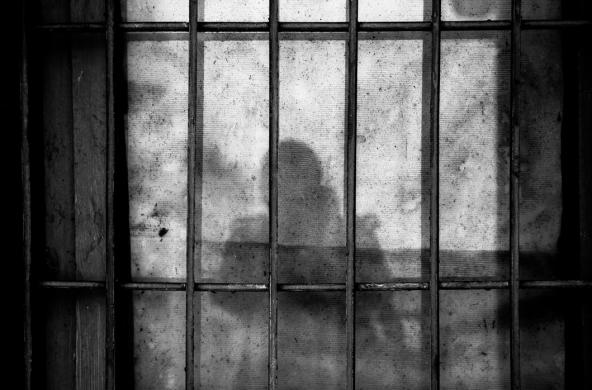
Article(s)
Follow-up to the initiative on the conditions of detention and treatment of death row prisoners
By Nordine Drici (Planète Réfugiés) & Sandrine Ageorges-Skinner (ECPM), on 10 June 2019
PRDH, in partnership with ECPM and the University of Grenoble-Alpes, organized a side event on the conditions of detention and treatment of death row prisoners worldwide during the 7th World Congress against the Death Penalty in Brussels (27 February – 1 March 2019) which provided food for thought and some areas of work thanks to the presence of some thirty participants working in more than 10 countries in Africa, Asia, Europe and Latin America. The results of these discussions are shared in this article.
2019
Peine_de_mort_et_conditions_détention_et_traitement_des_condamnés_à_mort-Pakistan-1.pdf
on 8 September 2020
2020
Peine_de_mort_et_conditions_détention_et_traitement_des_condamnés_à_mort-Sierra_Leone-1.pdf
on 8 September 2020
Peine_de_mort_et_conditions_détention_et_traitement_des_condamnés_à_mort-Afghanisan-1.pdf
on 8 September 2020
Peine_de_mort_et_conditions_détention_et_traitement_des_condamnés_à_mort-Mauritanie-1.pdf
on 8 September 2020
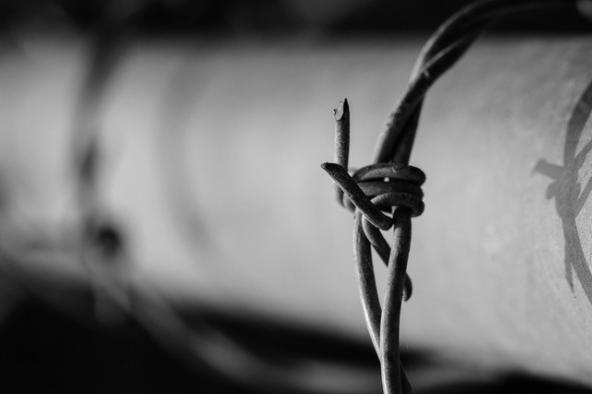
Article(s)
No mention of death row prisoners in Mandela rules
By Nordine Drici (Planète Réfugiés) & Sandrine Ageorges-Skinner (ECPM), on 30 November 2018
Commemorating the 70th anniversary of the Universal Declaration of Human Rights on 10 December 2018 is an opportunity to question the effectiveness of civil and political rights, but also economic, social and cultural rights, in the context of an increasingly globalized world that ostracizes, excludes, sentences to death and continues to execute.
2018
Death Row Conditions
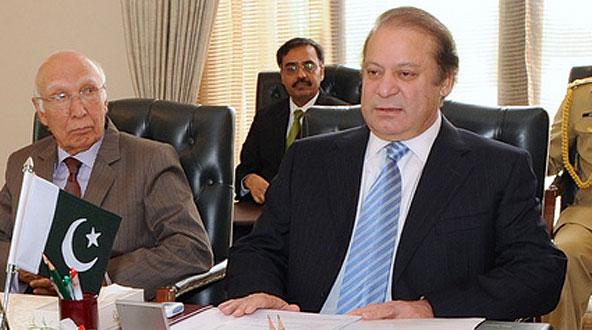
Article(s)
Suspension of Pakistan executions not enough – ADPAN
By Thomas Hubert, on 22 August 2013
The Anti Death Penalty Asia Network calls for the restoration of a formal moratorium after the government postponed a wave of executions under pressure from international abolitionists.
2013
Moratorium
Pakistan
Pakistan
Document(s)
The Process of Abolishing the Death Penalty in Members States of the Organisation of Islamic Cooperation
By Nael Georges, ECPM, on 27 November 2020
2020
NGO report
Afghanistan
Albania
Algeria
Azerbaijan
Bahrain
Brunei Darussalam
Burkina Faso
Cameroon
Chad
Comoros
Djibouti
Egypt
Indonesia
Iran (Islamic Republic of)
Iraq
Jordan
Kazakhstan
Kuwait
Kyrgyzstan
Lebanon
Libya
Malaysia
Maldives
Mali
Morocco
Mozambique
Niger
Nigeria
Oman
Qatar
Saudi Arabia
Sierra Leone
Somalia
Sudan
Suriname
Tajikistan
Togo
Tunisia
Turkey
Turkmenistan
Uganda
United Arab Emirates
Uzbekistan
arfrMore details See the document
As the 47th session of the Council of Ministers of Foreign Affairs of the Organisation of Islamic Cooperation (OIC) is being held on 27-28 November 2020 in Niamey, Niger, ECPM and Nael Georges release this study, “The Process of Abolishing the Death Penalty in Member States of the Organisation of Islamic Cooperation”.
- Document type NGO report
- Countries list Afghanistan / Albania / Algeria / Azerbaijan / Bahrain / Brunei Darussalam / Burkina Faso / Cameroon / Chad / Comoros / Djibouti / Egypt / Indonesia / Iran (Islamic Republic of) / Iraq / Jordan / Kazakhstan / Kuwait / Kyrgyzstan / Lebanon / Libya / Malaysia / Maldives / Mali / Morocco / Mozambique / Niger / Nigeria / Oman / Qatar / Saudi Arabia / Sierra Leone / Somalia / Sudan / Suriname / Tajikistan / Togo / Tunisia / Turkey / Turkmenistan / Uganda / United Arab Emirates / Uzbekistan
- Available languages مسارمإلغاء عقوبة الإعدافي الدول الأعضاءفي منظمة التعاونالإسلاميLes processus d’abolition de la peine de mort dans les États membres de l’Organisation de la coopération islamique (OCI)
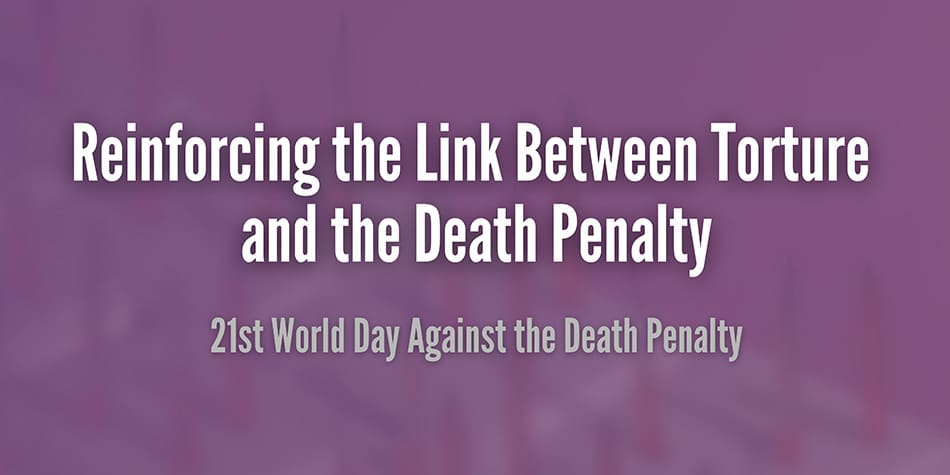
Article(s)
Reinforcing the Link Between Torture and the Death Penalty: 21st World Day Against the Death Penalty
By Venus Aves, on 17 November 2023
“There is no way in today’s world to apply the death penalty in a legal way, in a way that does not violate international law.” This was the bold and unequivocal assertion of former UN Special Rapporteur on Torture Juan Méndez in an online discussion with UN experts and exonerees organized by the World Coalition […]
2023
Cruel, Inhuman and Degrading Treatment and Punishment
Document(s)
Trapped Inside: Mental Illness & Incarceration
on 25 March 2022
2022
NGO report
Mental Illness
Pakistan
More details See the document
Pakistan’s criminal justice system fails to provide meaningful protection to persons suffering from mental illness at all stages of arrest, trial, sentencing and detention. Under Pakistani law, a person of unsound mind is unable to form criminal intent and therefore is not subject to punishment. Despite this, a disproportionate number of mentally ill prisoners are currently in Pakistan’s jails and on death row.
In light of the above, JPP, in collaboration with Monash University Australia, is launching a report titled “Trapped Inside: Mental Illness & Incarceration”, a comprehensive review of Pakistani law and practice with regards to mentally ill prisoners and defendants. This report seeks to help relevant stakeholders to better understand and respond appropriately to the mental health needs of individuals across the criminal justice system. It focuses on the steps stakeholders can take to promote and protect mental health and well-being of individuals at each stage. The report also explores last year’s landmark ‘Safia Bano’ judgement by Pakistan’s Supreme Court, which commuted the death sentences of two mentally ill death row prisoners, banned the execution of prisoners with psycho-social disabilities and set key safeguards for the same.
- Document type NGO report
- Countries list Pakistan
- Themes list Mental Illness
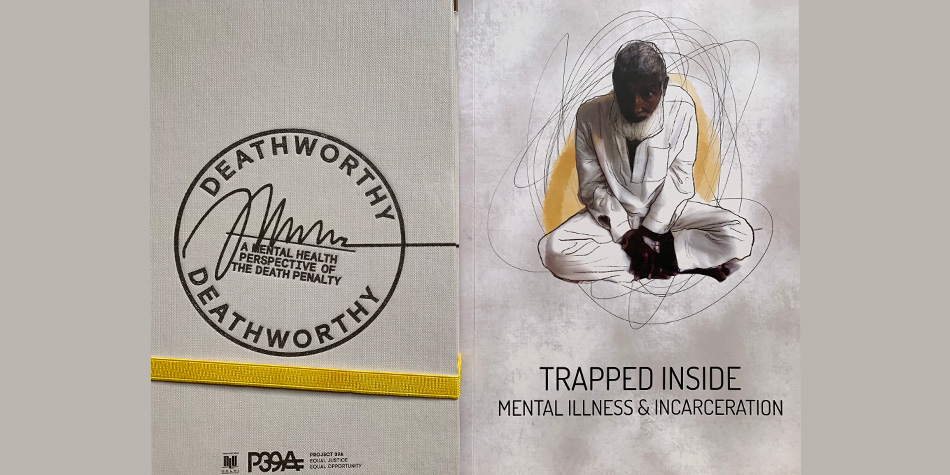
Article(s)
Over 8,000 people on death row in South Asia
By Aurelie Placais, staff, on 3 May 2022
With few executions but one of the biggest death rows in the world, South Asia is at a crossroad. Recent publications explore mental health on death row and social and economic background of people sentenced to death in Bangladesh, India, the Maldives, Pakistan and Sri Lanka.
2022
Bangladesh
Death Row Conditions
India
Maldives
Mental Illness
Pakistan
Sri Lanka
Document(s)
Killing in the Name of God: State-sanctioned Violations of Religious Freedom
By Eleos Justice, Monash University, on 10 November 2021
2021
Academic report
Brunei Darussalam
Iran (Islamic Republic of)
Maldives
Mauritania
Nigeria
Qatar
Saudi Arabia
Somalia
United Arab Emirates
Yemen
More details See the document
As of 2020, blasphemy was formally criminalised in some 84 countries. As many as 21 countries criminalised apostasy as of 2019. The legal penalties for such offences range from fines to imprisonment to corporal punishment—and in at least 12 countries, the death penalty.
This report examines the extent to which States commit, or are complicit in, killings that violate religious freedom. Focussing on the 12 States in which offences against religion are lawfully punishable by death, we examine four different types of State-sanctioned killings on the basis of religious offence (apostasy, blasphemy, or alike) or affiliation (most commonly, membership of a religious minority): judicial executions, extrajudicial killings, killings by civilians, and killings by extremist groups. We explore the relationship between the retention of the death penalty for religious offences and other forms of State-sanctioned killings motivated by alleged religious offending or by religious identity.
- Document type Academic report
- Countries list Brunei Darussalam / Iran (Islamic Republic of) / Maldives / Mauritania / Nigeria / Qatar / Saudi Arabia / Somalia / United Arab Emirates / Yemen
Document(s)
A/HRC/51/7 – Advance Edited Version – Question of the death penalty
By Office of the High Commissioner for Human Rights (OHCHR), on 26 July 2022
2022
United Nations report
More details See the document
Pursuant to Human Rights Council decision 18/117, the present report is submitted to update previous reports on the question of the death penalty. In the report, the Secretary-General reaffirms the trend towards the universal abolition of the death penalty and highlights initiatives limiting its use and implementing the safeguards guaranteeing the protection of the rights of those facing this severe penalty. A minority of States continued to use the death penalty. Pursuant to Council resolution 22/11, the report also includes information on the human rights of children of parents sentenced to the death penalty or executed.
- Document type United Nations report
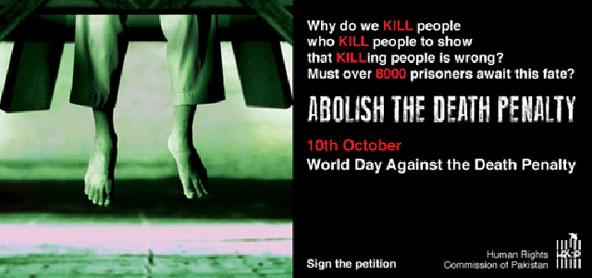
Article(s)
Pakistani authorities urged to renew moratorium
By Human Rights Commission of Pakistan, on 8 July 2013
The Human Rights Commission of Pakistan, a World Coalition member, has called on the government formed following recent elections to suspend executions. A previous moratorium order has expired and many prisoners are at risk of being hanged.While the 2008 moratorium was introduced under the rule of the Pakistan People Party, whose former leader Benazir Bhutto was a well-known abolitionist, it expired shortly after Nawaz Sharif of the Pakistan Muslim League became Prime minister.
Pakistan had already broken the moratorium when it executed a soldier in November 2012.
2013
Moratorium
Pakistan
Pakistan
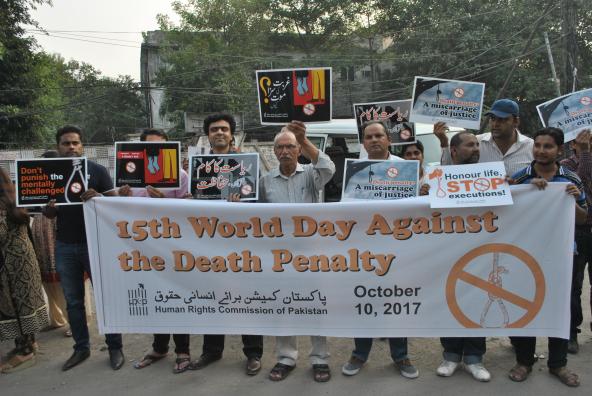
Article(s)
Abolitionists fight against the abusive use of the death penalty
By Thalia Gerzso, on 28 November 2017
In October 2017, Pakistan has agreed to initiate efforts to narrow down the scope of the death penalty. This first step is the result of a strong mobilization from Pakistani and international organizations, in particular during World Day.
2017
Pakistan
Public Opinion
Article(s)
Interview: Pakistan on its way to a moratorium?
on 25 July 2008
Pakistan’s new government has called on all death sentences in the country to be commuted to life imprisonment. Pakistani lawyer and human rights defender Kamran Arif believes a moratorium is at hand.
2008
Clemency
Moratorium
Pakistan
Pakistan
Document(s)
Uganda – Universal Periodic Review – Death Penalty – July 2021
on 21 July 2021
2021
NGO report
World Coalition
Uganda
More details Download [ pdf - 336 Ko ]
This report addresses Uganda’s compliance with its international human rights obligations with respect to the death penalty. The report examines and discusses the current state of the death penalty in Uganda, including (1) the broad scope of crimes that are eligible for the death penalty; (2) the lack of effective access to counsel in capital cases; (3) the occurrence of extrajudicial killings.
This report recommends that Uganda adopt a number of key steps to better align its death penalty practices with Uganda’s international human rights obligations. These steps include the following: establishing an official, de jure moratorium on the death penalty; reducing the number and scope of crimes that are eligible for the death penalty; reducing the maximum possible sentence from death to one that is fair, proportionate and in compliance with international human rights standards; and other measures
- Document type NGO report / World Coalition
- Countries list Uganda

Article(s)
Pakistan moratorium renewal welcomed
By Human Rights Commission of Pakistan, on 8 October 2013
The Human Rights Commission of Pakistan (HRCP), a World Coalition member organisation, has welcomed the federal government’s announcement on continuing the moratorium on capital punishment and has called for a thorough review of the death penalty regime in the country.
2013
Moratorium
Pakistan
Pakistan
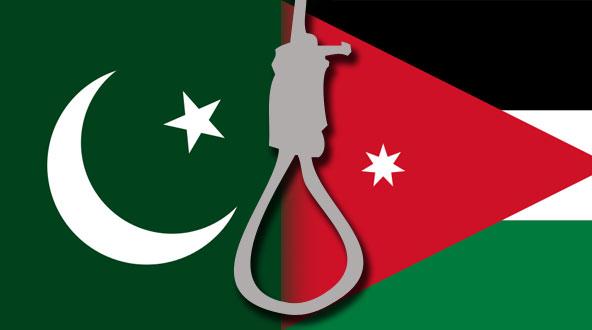
Article(s)
Executions in Jordan and Pakistan show need to go beyond moratorium
By Thomas Hubert, on 16 January 2015
The World Coalition and its members have criticised decisions by the governments of Jordan and Pakistan to reverse their policy of suspending executions despite a historic vote in favour of a moratorium on the use of the death penalty at the UN General Assembly.
2015
Jordan
Moratorium
Pakistan
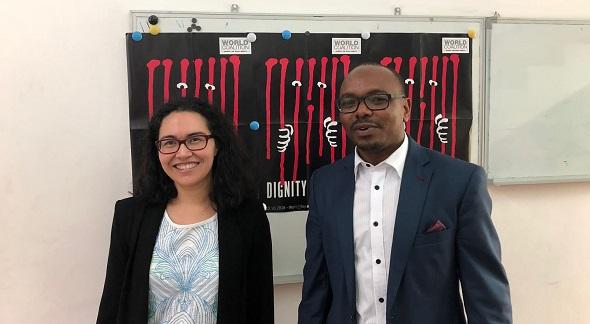
Article(s)
Hope resonates globally on World Day against the Death Penalty
By Nicolas Chua, on 25 October 2018
On 10 October 2018, abolitionist forces around the world celebrated the 16th World Day against the Death Penalty in a flurry of diverse activities and events meant to raise awareness on living conditions on death row. Activists in every continent mobilized civil society, challenged governments and reached out to the general public in a collective effort to promote and advance the common goal of universal, worldwide abolition of the death penalty.
2018
Death Row Conditions
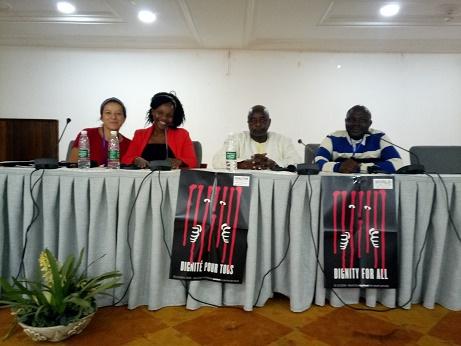
Article(s)
NGO Forum & The ACHPR: A broad overview of African prisons amidst tensions
By Jessica Corredor, on 16 November 2018
The NGO Forum, preceding the ACHPR session, was held from 20 to 23 October 2018, with “The Fight against Corruption” as its main topic.
2018
Death Row Conditions
Legal Representation
Document(s)
Zimbabwe – Universal Periodic Review – Death Penalty – July 2021
By Eleos Justice, Monash University, on 15 July 2021
2021
NGO report
World Coalition
Zimbabwe
More details Download [ pdf - 271 Ko ]
This report addresses Zimbabwe’s compliance with its human rights obligations with respect to its use of the death penalty. The United Nations considers Zimbabwe a de facto abolitionist country. It has not carried out any executions since 2005. Courts, however, continue to sentence individuals to death, with 88 people currently on death row as of December 2020, after 8 sentences were commuted in April 2020. The new Zimbabwean Constitution (the “2013 Constitution”) has replaced the mandatory death penalty with a discretionary sentence for the crime of murder committed under aggravating circumstances. The 2013 Constitution further outlaws the imposition of the death penalty on women, men over the age of 70, and men under the age of 21 at the time the offence was committed. In its 2016 Universal Periodic Review, Zimbabwe noted all recommendations related to the death penalty, partly on the ground that Zimbabwean public opinion did not support abolition of death penalty. Since 2016, developments demonstrate a more positive attitude among the public and opinion leaders toward further reform and the abolition of death penalty.
This report focuses on various issues concerning the death penalty and related international human rights instruments, and on conditions of detention and acts of torture and ill treatment of people in detention. Specifically, this report recommends that Zimbabwe abolish the death penalty, improve detention conditions, ratify relevant human rights treaties, and increase resources dedicated to improving the justice system.
- Document type NGO report / World Coalition
- Countries list Zimbabwe
Document(s)
Amnesty International Global Report : Death Sentences and Executions 2021
on 25 May 2022
2022
NGO report
aresfrMore details Download [ pdf - 2638 Ko ]
2021 saw a worrying rise in executions and death sentences as some of the world’s most prolific executioners returned to business as usual and courts were unshackled from Covid-19 restrictions, Amnesty International said today in its annual review of the death penalty.
- Document type NGO report
- Available languages التقرير العالمي لمنظمة العفو الدولية أحكام وعمليات الإعدام في 2021Condenas A Muerte Y Ejecuciones 2021Condamnations à mort et exécutions 2021
Document(s)
Resolution 77/274 – Moratorium on the use of the death penalty
By United Nations General Assembly, on 8 August 2022
2022
United Nations report
More details See the document
The present report provides information on the implementation of General Assembly resolution 75/183. It discusses developments towards the abolition of the death penalty and the establishment of moratoriums on executions and highlights trends in the use of the death penalty, including the application of international standards relating to the protection of the rights of those facing the death penalty. The report discusses conditions of detention for persons on death row, the application of the death penalty to foreign nationals, its disproportionate and discriminatory application to women, its disproportionate impact on poor and economically vulnerable individuals, its discriminatory use relating to persons exercising their human rights, and various initiatives for advancing its abolition. The report welcomes progress made towards universal abolition in States representing different legal systems, traditions, cultures and religious backgrounds. It concludes that all measures aimed towards limiting the application of the death penalty constitute progress in the protection of the right to life.
- Document type United Nations report
Document(s)
Justice Project Pakistan, Pakistanis Imprisoned Abroad Database
By Justice Project Pakistan (JPP), on 7 February 2024
2024
NGO report
Pakistan
More details See the document
Pakistan is counted among the countries that rely heavily on foreign remittances for economic stability and foreign reserves. However, despite its dependence on foreign remittances from migrant workers, Pakistan has done little to protect its vulnerable citizens from landing in foreign jails. As a result, Pakistan has seen a significant increase in the number of prisoners and executions abroad. Inadequate oversight and the lack of proper enforcement of existing protections is a literal death sentence for scores of Pakistanis who simply seek a better life and improved prospects for loved ones by working abroad.
- Document type NGO report
- Countries list Pakistan
Member(s)
Legal Awareness Watch (LAW)
on 30 April 2020
Legal Awareness Watch (LAW) is a nonpartisan, non-profitable NGO registered under law since 1999, holding registration number 1388. Since its creation, LAW has been advocating, and raising awareness in Pakistan on human rights of prisoners in 104 Pakistani prisons i.e. the right to vote, right to dignity, right to life etc. Apart from the promotion […]
2020
Pakistan
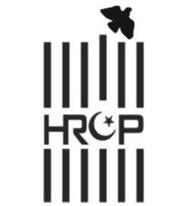
Member(s)
Human Rights Commission of Pakistan
on 30 April 2020
Founded in 1986 and registered in 1987, the Human Rights Commission of Pakistan (HRCP) is an independent, democratic, nonpartisan organization committed to supporting human rights in the country. Over the last three decades, HRCP has worked for women’s empowerment and gender equality, the rights of religious minorities, rule of law and access to justice, democratic […]
Pakistan

Article(s)
Abolition of the death penalty must be an integral part of crime prevention programmes and criminal justice reforms
By Amnesty International, on 5 March 2021
As the Fourteenth United Nations Congress on Crime Prevention and Criminal Justice is about to begin in Kyoto, Japan, the undersigned organizations urge the Economic and Social Council (ECOSOC) and its subsidiary bodies, including the UN Office on Drugs and Crime (UNODC); and all UN member states, including the Congress host country Japan, to make […]
2021
Public Opinion
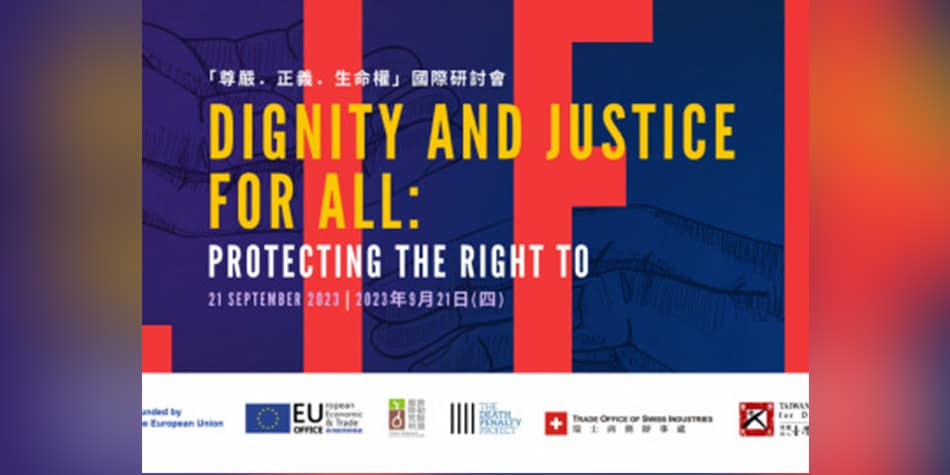
Article(s)
International Symposium on the Right to Life in Taiwan
By Taiwan Alliance to End the Death Penalty (TAEDP), on 12 January 2024
The Taiwan Alliance to End the Death Penalty (TAEDP) held a series of events including an international seminar, prison visit, and meetings that took place from 19-22 September 2023 to celebrate its 20th anniversary.
2024
Cruel, Inhuman and Degrading Treatment and Punishment
Death Row Conditions
India
Taiwan
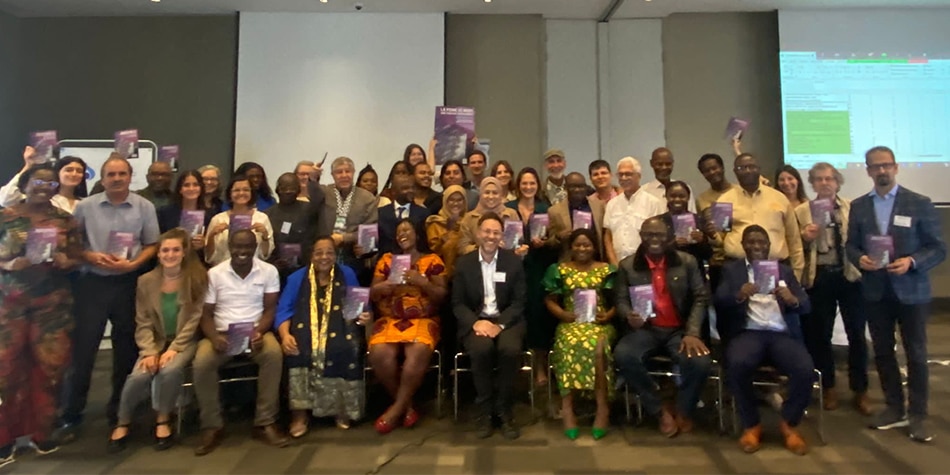
Article(s)
World Coalition held first General Assembly in East Africa
By World Coalition against the death penalty, on 7 July 2023
The World Coalition Against the Death Penalty co-organized with ICJ-Kenya its first General Assembly in Nairobi, Kenya on 23-24 June 2023.
2023
Trend Towards Abolition
Document(s)
Guess Who’s Coming to Jury Duty? How the Failure to Collect Juror Demographic Data Contributes to Whithewashing the Jury Box
By Berkeley Law Death Penalty Clinic , on 30 April 2024
2024
Academic report
United States
More details See the document
Published on February 2024.
Founded in 2001, the Berkeley Law Death Penalty Clinic seeks justice for individuals facing capital punishment by providing high-quality representation and offers students a rich opportunity for meaningful, hands-on experience in high stakes, complex litigation. The clinic also tackles problems endemic to the administration of the death penalty and the criminal legal system.
The report continues the clinic’s racial justice research and advocacy by cataloging the states that gather prospective jurors’ self-identified race and ethnicity and those that do not. It examines what courts do with the information, including whether it is provided to the court and counsel for use during jury selection, and the consequences of these choices in furthering or obstructing jury representativeness and diversity. In particular, the report shows why the collection of prospective jurors’ self-identified race and ethnicity is vital to meeting state and federal fair cross-section guarantees and eliminating the discriminatory exercise of peremptory challenges.
- Document type Academic report
- Countries list United States
Document(s)
Deathworthy: a mental health perspective of the death penalty
By Project 39A, on 7 October 2021
2021
Academic report
India
Mental Illness
More details See the document
A first of its kind report, Deathworthy, presents empirical data on mental illness and intellectual disability among death row prisoners in India and the psychological consequences of living on death row. The report finds that an overwhelming majority of death row prisoners interviewed (62.2%) had a mental illness and 11% had intellectual disability. The proportion of persons with mental illness and intellectual disability on death row is overwhelmingly higher than the proportion in the community population. The report also establishes correlations between conditions of death row incarceration and mental illness and ill-health. Led and conceptualised by Maitreyi Misra (Head, Mental Health and Criminal Justice, Project 39A, National Law University Delhi), the study was conducted under the guidance of Dr. Pratima Murthy (Director, NIMHANS), Dr Sanjeev Jain (Senior Professor, Deptt of Psychiatry, NIMHANS) and Dr Gitanjali Narayanan (Associate Professor, Deptt of Psychology, NIMHANS).
- Document type Academic report
- Countries list India
- Themes list Mental Illness
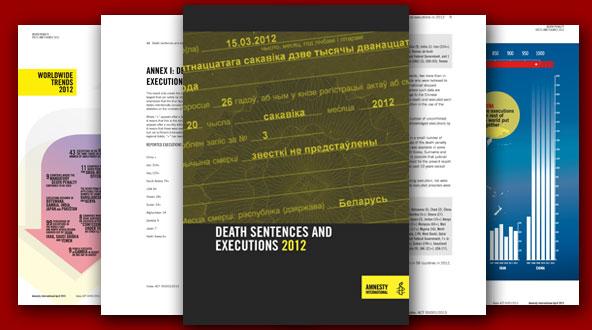
Article(s)
Only one in 10 countries carried out executions in 2012
By Tiziana Trotta, on 10 April 2013
At least 682 people were executed last year aside from China, according to Amnesty International.
2013
Afghanistan
Bahrain
Barbados
Belarus
Burkina Faso
China
Death Row Conditions
Democratic People's Republic of Korea
Egypt
Gambia
Ghana
Guyana
India
Iran (Islamic Republic of)
Iraq
Malawi
Moratorium
Pakistan
Saudi Arabia
Sierra Leone
Singapore
Syrian Arab Republic
Taiwan
Trinidad and Tobago
Viet Nam
Yemen
Coalition mondiale contre la peine de mort_ Glossaire Genre et Peine de mort
on 1 August 2023
Coalition mondiale contre la peine de mort_ Glossaire Genre et Peine de mort
2023
Document(s)
Pakistan: Death Penalty Action on Pakistan
By Amnesty International, on 1 January 2006
2006
NGO report
More details See the document
Amnesty International has received reports from contacts in Pakistan that there has recently been an increase in executions in Pakistan: 60 people have been executed this year in the province of Punjab alone. In addition, 10 executions are known to have taken place in the North-West Frontier Province. There are continuing concerns around the application of the death penalty in Pakistan including the execution of juveniles.
- Document type NGO report
- Themes list Networks,
Document(s)
The Pakistan Capital Punishment Study. A Study of the Capital Jurisprudence of the Supreme Court of Pakistan
By Reprieve / Fundation for Fundamental Rights, on 1 January 2019
2019
NGO report
More details See the document
The Pakistan Capital Punishment Study is the result of a two-year long research and analysis project undertaken by lawyers and academics at the Foundation for Fundamental Rights (‘FFR’) in Pakistan and international legal non-profit organization, Reprieve.
- Document type NGO report
- Themes list Death Penalty, Country/Regional profiles,
7congress-Resolution_Peine_de_mort_Barreaux_EN-FR-1.pdf
on 8 September 2020
2020

Article(s)
Pakistan’s Supreme Court Repeals Death Penalty for people with intellectual disability
By Louis Linel, on 10 February 2021
By commuting two death sentences, the Supreme Court of Pakistan ruled that capital punishment cannot be carried out to people with serious mental health issues.
2021
Intellectual Disability
Pakistan
Article(s)
Japan executes mentally ill people and pushes prisoners over the edge
on 11 September 2009
The Japanese government continues to execute prisoners with psychiatric illnesses and the conditions on death row provoke mental disorders among inmates, according to a new Amnesty International report.
2009
Death Row Conditions
Japan
Mental Illness
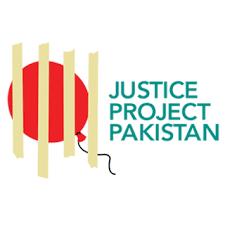
Member(s)
Justice Project Pakistan (JPP)
on 30 April 2020
Justice Project Society, commonly referred to as Justice Project Pakistan (JPP), represents the most vulnerable Pakistani prisoners facing the harshest punishments at home and abroad, including those facing the death penalty, mentally ill prisoners, victims of police torture, and overseas Pakistani prisoners. JPP was the winner of the 2016 Franco-German Human Rights Prize for the […]
2020
Pakistan
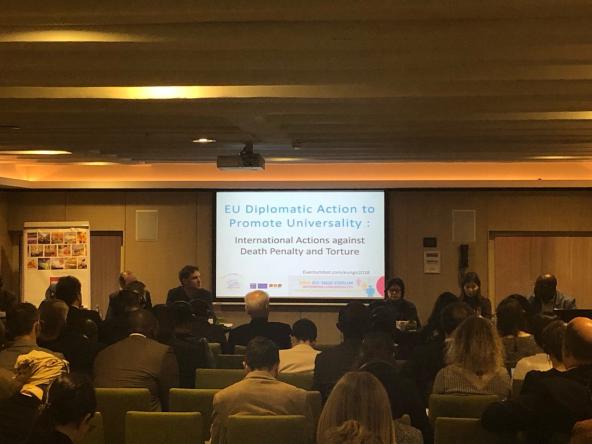
Article(s)
Death penalty is torture, says expert
By Nicolas Chua & FIACAT, on 29 November 2018
In celebration of the Universal Declaration of Human Rights’ 70th anniversary, the 20th EU-NGO Forum was held in Brussels on 21-22 November 2018, during which a session on “International Actions against Death Penalty and Torture” took place. World Coalition Director Aurélie Plaçais was invited to participate in the panel discussion, alongside representatives from Coalition member organizations ECPM and FIACAT.
2018
Death Row Conditions
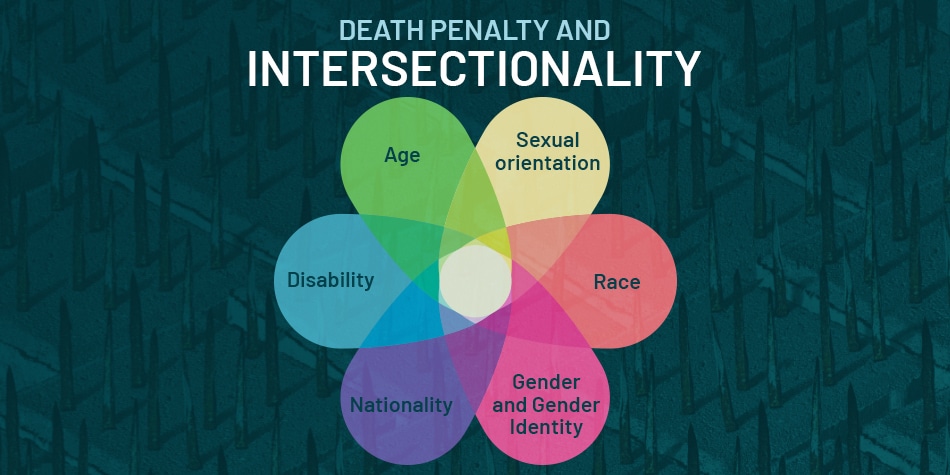
Article(s)
Joint statement on the death penalty and human rights of women and LGBTQIA+ individuals
By World Coalition Against the Death Penalty, on 10 October 2022
20th World Day against the Death Penalty On this 20th anniversary of the World Day Against the Death Penalty dedicated to the link between torture and the use of the death penalty and in continuation of the 2021 World Day Against the Death Penalty dedicated to women facing capital punishment, sentenced to death, executed, pardoned […]
2022
Cruel, Inhuman and Degrading Treatment and Punishment
Death Row Conditions
Fair Trial
Women
Document(s)
Death Penalty in Pakistan
By Justice Project Pakistan, on 10 October 2022
NGO report
Pakistan
More details See the document
The implementation of capital punishment has seen substantial shifts over the course of the past decade. During the period from the end of a moratorium on executions in December 2014 to August 2019, an estimated 1,800 death sentences were imposed across the entire court system and 520 people were executed. Various amendments to Pakistan’s criminal law over the past several decades have resulted in a list of 33 offenses, most of which are far removed from the definition of the “most serious crimes” under international law. A full list of offences is attached at the end of the report.
- Document type NGO report
- Countries list Pakistan
Document(s)
Felony Murder: An On-Ramp for Extreme Sentencing
By The Sentencing Project, Fair and Just Prosecution, on 23 March 2022
2022
NGO report
United States
More details See the document
Although other countries have largely rejected the felony murder doctrine, 48 states, the District of Columbia, and the federal government still use these laws. Felony murder laws compel harsh decades-long – or even life – sentences even when the individual charged did not directly cause or intend the loss of life.
This report evaluates the legal and empirical foundation, and failings, of the felony murder rule, profiles impacted individuals, and highlights recent reform efforts in 10 jurisdictions. Key findings include:
1. Felony murder laws widen the net of extreme sentencing and are counterproductive to public safety.
2. Felony murder laws have particularly adverse impacts on people of color, young people, and women.
3. Existing reforms must be expanded to achieve justice.
- Document type NGO report
- Countries list United States
Document(s)
Annual Report on The Death Penalty In Iran 2021
on 28 April 2022
2022
NGO report
Iran (Islamic Republic of)
frMore details See the document
The 120-page report assesses and analyses trends in death penalty practices in order to propose recommendations, tailored to the national context, and to engage in a constructive dialogue on capital punishment in the country.
The death penalty situation in the Islamic Republic of Iran remains alarming with a significant increase in executions in 2021 (+25%) and an increasing number of Iranian women being executed. The number of executions has doubled after the election of Ebrahim Raeisi as President, and as the Islamic Republic and Western governments negotiate to revive the nuclear deal, also called the Joint Comprehensive Plan of Action (JCPOA). These are some of the main findings of the 14th Annual Report on the Death Penalty in Iran by Iran Human Rights (IHRNGO) and Ensemble Contre la Peine de Mort (ECPM) released today.
- Document type NGO report
- Countries list Iran (Islamic Republic of)
- Available languages Rapport annuel sur la peine de mort en Iran 2021
Document(s)
Worked to Death: A study on migrant workers and capital punishment
By Migrant Care and Reprieve, on 24 November 2021
2021
NGO report
Fair Trial
Indonesia
Legal Representation
Malaysia
Nigeria
Pakistan
Saudi Arabia
Women
More details See the document
Foreign nationals, and within this group migrant workers, are a population that disproportionately faces the death penalty around the world. The data and statistics gathered by Reprieve and Migrant CARE for this report show that migrant workers as a sub-set of the foreign national population are at grave risk of human rights violations related to the death penalty, including arbitrary deprivation of the right to life in the context of unlawful death sentences and executions.
This report focuses on: states that receive migrant workers (‘receiving states’), in particular the states that make up the Association of South East Asian Nations or ASEAN (‘South East Asian states’) and the Gulf Cooperation Council (‘Gulf states’), and on states from which migrant workers travel to work (‘sending states’).
- Document type NGO report
- Countries list Indonesia / Malaysia / Nigeria / Pakistan / Saudi Arabia
- Themes list Fair Trial / Legal Representation / Women
Document(s)
Isolation and desolation conditions of detention of people sentenced to death Malaysia
By Carole Berrih, Ngeow Chow Ying, ECPM, ADPAN, on 27 May 2021
2021
NGO report
Death Row Conditions
Malaysia
frMore details See the document
Isolation and Desolation – Conditions of Detention of People Sentenced to Death in Malaysia is the first ever fact-finding mission report on the conditions of detention of death row prisoners in Malaysia.
It examines the use of death penalty in Malaysia as well as the actual situation of people on death row.
This report is not meant to point fingers but rather to put the facts on the table in a transparent manner and work from there. It is mainly an advocacy tool for all abolitionist stakeholders, from civil society actors to the parliamentarians who will keep fighting for the abolition of the death penalty.
- Document type NGO report
- Countries list Malaysia
- Themes list Death Row Conditions
- Available languages Isolement et désespoir conditions de détention des condamnés à mort Malaisie
Document(s)
Annual Report On the Death Penalty in Iran 2023
By Iran Human Rights (IHRNGO) with the support of ECPM (Together Against the Death Penalty), on 14 March 2024
2024
NGO report
Iran (Islamic Republic of)
More details See the document
Published on March 5, 2024
This report has been drafted by Iran Human Rights (IHRNGO) with the support of ECPM (Together Against the Death Penalty). Since 2012, Iran Human Rights and ECPM have been working together for the publication, international release and distribution of annual reports on the death penalty in Iran.
The 16th annual report on the death penalty by Iran Human Rights and ECPM (Together Against the Death Penalty) provides an assessment and analysis of the 2023 death penalty trends in 2023 in the Islamic Republic of Iran. It sets out the number of executions in 2023, the trend compared to previous years, the legislative framework and procedures, charges, geographic distribution and a monthly breakdown of executions. Lists of the female and juvenile offenders executed in 2023 are also included in the tables. The report also looks into the abolitionist movement within Iran, including the forgiveness movement and its contribution to reducing the use of the death penalty, and provides analysis on how the international community can contribute to limiting the scope of the death penalty in Iran. The 2023 report is the result of hard work from Iran Human Rights members and supporters who took part in reporting, documenting, collecting, analysing and writing of its contents. We are especially grateful to Iran Human Rights sources inside Iran who incur a significant risk by reporting on unannounced and secret executions in prisons of 30 different provinces. Due to the very difficult context, the lack of transparency and the obvious risks and limitations that human rights defenders face in the Islamic Republic of Iran, this report does not give a complete picture of the use of the death penalty in Iran by any means. There are 46 reported executions which are not included in this report due to a lack of sufficient details or an inability to confirm cases through two different sources. However, it aims to provide the most complete and realistic figures possible in the present circumstances. The current report does not include suspicious deaths in custody, death row prisoners who died in prison before the executions or those killed under torture. ECPM supports the elaboration, editing process, publishing and distribution of this report in the framework of its international advocacy work against the death penalty. The problems of transparency on the data and information about the death penalty in Iran should be overcome by a strong strategy of distribution and dissemination. The overall objectives of this report for Iran Human Rights and ECPM are to call attention to and publicise the facts, in order to change national and international views on the situation of the death penalty in Iran, first executioner country in the world.
- Document type NGO report
- Countries list Iran (Islamic Republic of)
Document(s)
Death Row’s Children: Pakistan’s Unlawful Executions of Juvenile Offenders
By Justice Project Pakistan, on 1 January 2017
2017
NGO report
More details See the document
On 16 December 2014, the Government of Pakistan lifted a six-year de facto moratorium on the death penalty. Whilst the Government claims that the lifting of the moratorium is designed to curb terrorism, an analysis of the 423 executions that have taken place till February 2017 reveals that the death penalty has disproportionately impacted the most vulnerable of all populations including juvenile offenders. Even though Pakistan’s international obligations and domestic laws prohibit sentencing juvenile offenders to death, at least 6 have been executed in the past two years.Through this report, the Justice Project Pakistan highlights the fundamental weaknesses under Pakistan’s juvenile justice system that lead to the unlawful and arbitrary implementation of the death penalty against juvenile offenders.
- Document type NGO report
- Themes list Juveniles, Fair Trial, International law, Cruel, Inhuman and Degrading Treatment and Punishment, Death Penalty, Country/Regional profiles,
Document(s)
Slow march to the gallows: Death penalty in Pakistan
By International Federation for Human Rights (FIDH) / Anne-Christine Habbard, on 1 January 2007
2007
NGO report
More details See the document
Pakistan ranks among the countries in the world which issue the most death sentences: currently, over 7,400 prisoners are lingering on death row. In recent years, Pakistan has witnessed a significant increase in charges carrying capital punishment, in convictions to death, as well as in executions. The HRCP and FIDH find that the application of death penalty in Pakistan falls far below international standards. In particular, they find that, given the very serious defects of the law itself, of the administration of justice, of the police service, the chronic corruption and the cultural prejudices affecting women and religious minorities, capital punishment in Pakistan is discriminatory and unjust, and allows for a high probability of miscarriages of justice, which is wholly unacceptable in any civilised society, but even more so when the punishment is irreversible. At every step, from arrest to trial to execution, the safeguards against miscarriage of justice are weak or non-existent, and the possibility that innocents have been or will be executed remains frighteningly high.
- Document type NGO report
- Themes list Due Process , Discrimination,
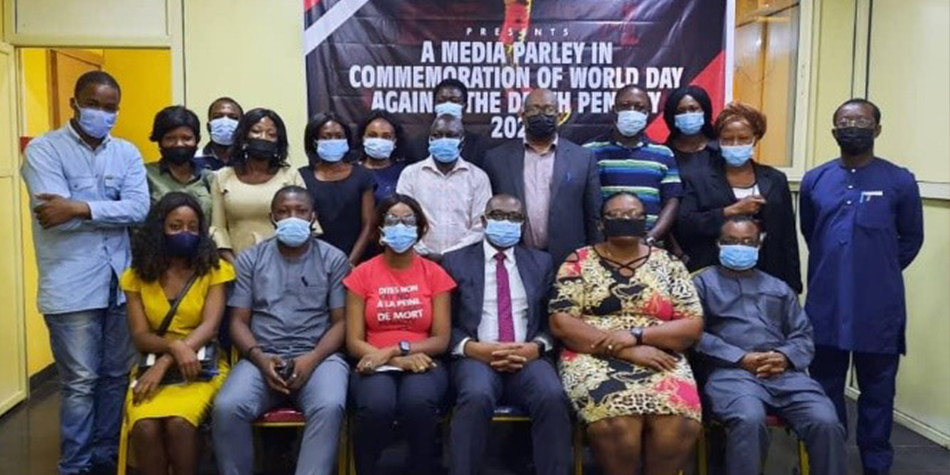
Article(s)
Women Sentenced to Death Showcased on the 19th World Day Against the Death Penalty
By Elise Garel, on 3 December 2021
With the theme “Women sentenced death: an invisible reality”, the 19th World Day Against the Death Penalty aimed to highlight the issues faced by women who are sentenced to death, executed, pardoned or exonerated around the world.
2021
Cameroon
Indonesia
Iran (Islamic Republic of)
Morocco
Nigeria
Pakistan
Sierra Leone
United States
Women
Article(s)
Activists oppose the death penalty across Asia
on 30 October 2008
Although European activists were slow to take action on World Day Against the Death Penalty, their Asian counterparts showed their strength, especially in the World Coalition’s target countries.
2008
India
Japan
Mongolia
Pakistan
Public Opinion
Republic of Korea
Taiwan
Document(s)
Terror on Death Row: The Abuse and Overuse of Pakistan’s Anti-Terrorism Legislation
By Reprieve / Justice Project Pakistan, on 8 September 2020
2020
NGO report
Pakistan
More details See the document
This report is a result of death row prisoner data from 38 prisons across Pakistan’s four provinces(Balochistan, Khyber Pakhtunkhwa (‘KPK ’),Punjab and Sindh. For most of Pakistan, the data runs to December 2012, thereby covering all those who are presently subject to execution dates. However, the report reflects further data on the province of Sindh running to October 2014
- Document type NGO report
- Countries list Pakistan
- Themes list Death Penalty, Country/Regional profiles,
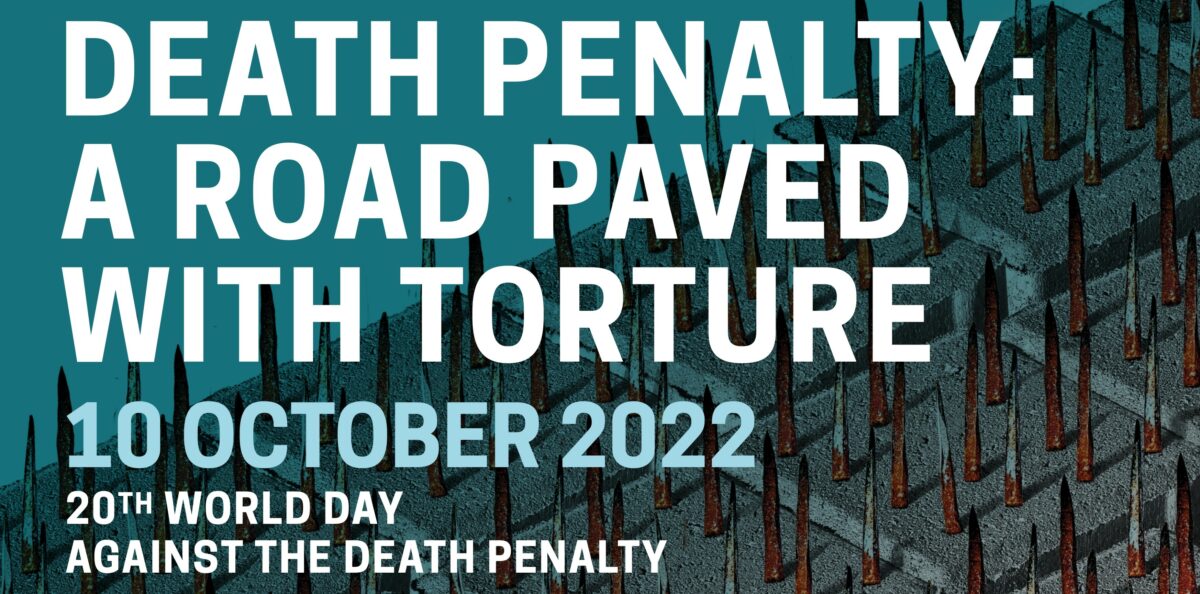
Article(s)
A Look Back at the 20th Anniversary of the World Day Against the Death Penalty
By Dunia Schaffa, on 27 January 2023
“Psychologically I am no longer human.”. This tweet by the World Organization Against Torture, quoting an interview with Richard Yav, a former security guard who was wrongly sentenced to death for 20 years in Benin, sheds light on the various impacts of torture.
2023
Cruel, Inhuman and Degrading Treatment and Punishment
Death Row Conditions
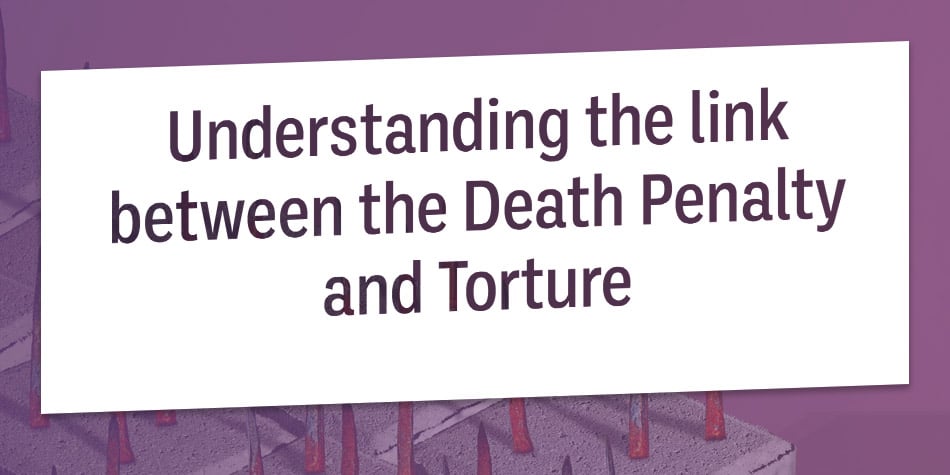
Article(s)
International Day in Support of Victims of Torture: Understanding the link between the Death Penalty and Torture
By Wendy Adouki, on 26 June 2023
Today, 26th June 2023, the world is commemorating the International Day in Support of Victims of Torture (International Day). Started in 1987, this International Day began when the United Nations Convention Against Torture and Other Cruel, Inhuman or Degrading Treatment or Punishment (UN Convention Against Torture) came into force; a crucial legal text to combat […]
2023
Cruel, Inhuman and Degrading Treatment and Punishment
Death Row Conditions
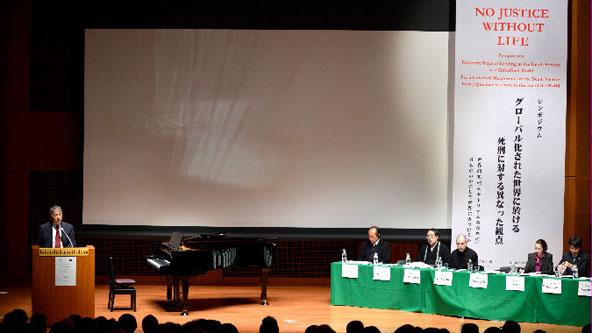
Article(s)
Japan’s death penalty under scrutiny
By The Advocates for Human Rights, on 5 November 2012
After a high-level conference on the abolition of the death penalty in Tokyo on October 29th, the United Nations’ Human Rights Council examined Japan’s record on October 31st as part of the Universal Periodic Review, a worldwide mechanism to monitor the enforcement of human rights. Major Japanese infringements concern the use of the death penalty.
2012
Clemency
Cruel, Inhuman and Degrading Treatment and Punishment
Death Row Conditions
Fair Trial
Intellectual Disability
Japan
Legal Representation
Mental Illness
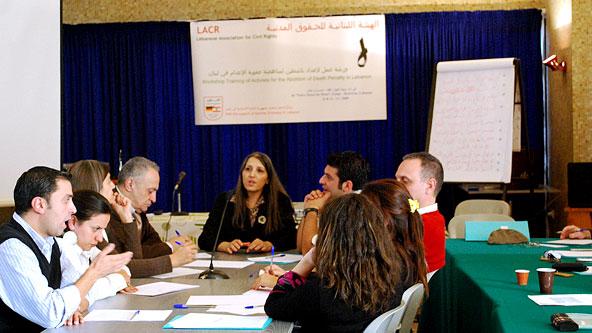
Article(s)
“Catastrophic” conditions on Lebanon’s death row
By Delphine Judith, on 31 May 2013
Ogarit Younan is a co-founder of the Lebanese Association for Civil Rights, which has just joined the World Coalition. She takes stock on the death penalty and abolitionist progress in Lebanon.
2013
Death Row Conditions
Lebanon
Document(s)
ISOLATION AND DESOLATION CONDITIONS OF DETENTION OF PEOPLE SENTENCED TO DEATH MALAYSIA – Bahasa Melayu
By Carole Berrih, Ngeow Chow Ying, ECPM, ADPAN, on 27 May 2021
2021
NGO report
Death Row Conditions
Malaysia
More details See the document
Isolation and Desolation – Conditions of Detention of People Sentenced to Death in Malaysia is the first ever fact-finding mission report on the conditions of detention of death row prisoners in Malaysia.
It examines the use of death penalty in Malaysia as well as the actual situation of people on death row.
This report is not meant to point fingers but rather to put the facts on the table in a transparent manner and work from there. It is mainly an advocacy tool for all abolitionist stakeholders, from civil society actors to the parliamentarians who will keep fighting for the abolition of the death penalty.
—————————————
Isolation and Desolation – Conditions of Detention of People Sentenced to Death di Malaysia adalah satu-satunya laporan berasaskan misi mengkaji fakta (fact-finding mission) mengenai keadaan-keadaan penahanan bagi banduan-banduan hukuman mati di Malaysia.
Laporan ini mengkaji pelaksanaan hukuman mati di Malaysia dan juga keadaan sebenar orang-orang yang dijatuhkan hukuman mati.
Laporan ini bukan bertujuan untuk menunding jari terhadap mana-mana pihak, tetapi bertujuan untuk memberi pencerahan kepada fakta-fakta yang ditemui dan berusaha ke atasnya. Laporan ini bertujuan utama sebagai alat advokasi kepada semua pihak yang mempunyai kepentingan dalam pemansuhan, bermula dari ahli persatuan kemasyarakatan sehingga ahli parlimen yang akan berusaha berterusan untuk memansuhkan hukuman mati.
- Document type NGO report
- Countries list Malaysia
- Themes list Death Row Conditions
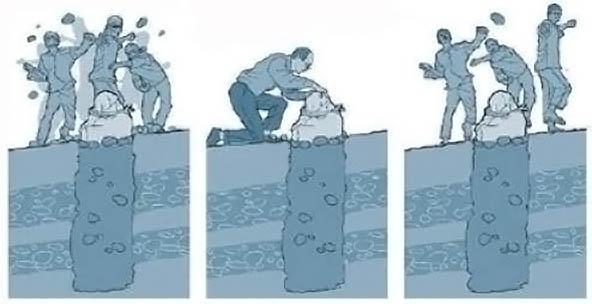
Article(s)
World Coalition members share knowledge on UN advocacy
By Asil Abuassba (The Advocates for Human Rights), on 19 February 2015
Asil Abuassba, a Palestinian intern with World Coalition member organisation The Advocates for Human Rights, attended a training session to help global activists submit reports on the death penalty situation in their countries to UN bodies.
2015
Cruel, Inhuman and Degrading Treatment and Punishment
Death Row Conditions
Fair Trial
Innocence
Intellectual Disability
Juveniles
Mental Illness

Article(s)
Statement on the end of the unofficial moratorium on executions in Myanmar
By the World Coalition Against the Death Penalty, on 11 August 2022
The World Coalition Against the Death Penalty, and ACAT-France, ACAT-Germany (and their partner organization Federal Association of Vietnamese Refugees in the Federal Republic of Germany), Amnesty International, Anti-Death Penalty Asia Network (ADPAN), Avocats Sans Frontières France, Centre for Civil and Political Rights, Citizens United for Rehabilitation of Errants (CURE International), Coalition Marocaine Contre la Peine […]
2022
Moratorium
Myanmar
FR_WCADP_TDR_GenderSensitiveEvaluationWorldDay2021_30.09
on 7 October 2022
Termes de reference – evaluation sensible au genre
2022
Document(s)
Punished for Being Vulnerable. How Pakistan executes the poorest and the most marginalized in society
By Human Rights Commission of Pakistan (HRCP) / Fédération Internationale des Ligues des Droits de l'Homme (FIDH), on 1 January 2019
2019
NGO report
More details See the document
The present report aims to provide an update on the 2007 report, bearing in mind the significant changes that have taken place in Pakistan under various governments since then, including the 2008 unofficial moratorium and the resumption of executions in 2014. The mission aimed at exploring specific issues within the theme of the death penalty, including detention conditions on death row, the use of capital punishment for minors, and the impact of the death penalty on families of death row inmates, particularly their children. However, a recurring theme emerged in discussions about each of these sub-issues: a strong systemic bias against the poor and marginalized.
- Document type NGO report
- Themes list Fair Trial, Death Penalty,
Document(s)
World Psychiatric Association position statement mental health and the death penalty
By World Psychiatric Association, on 30 November 2023
2023
Arguments against the death penalty
Fair Trial
Intellectual Disability
zh-hantMore details See the document
International law and laws of various countries prohibit the imposition of the death penalty on persons
with mental illness or developmental and intellectual disabilities due to the special barriers faced by
them in defending themselves; their limited moral culpability; and their diminished ability to
understand the nature and reason for their execution. However, due to lack of accommodations in
criminal proceedings and legal safeguards, persons with mental illness, developmental and intellectual
disabilities are at a greater risk of being sentenced to death and having their fair trial rights denied.
Authors:
Maitreyi Misra, Director (Mental Health and Criminal Justice), Project 39A, National Law University
Delhi.
Namrata Sinha, Research Associate (Mental Health and Criminal Justice), Project 39A, National Law
University Delhi.
Neeraj Gill, Professor, Health Research Institute, University of Canberra and Griffith University,
School of Medicine, Griffith University, Gold Coast, Australia.
Soumitra Pathare, Consultant Psychiatrist, Director, Centre for Mental Health Law and Policy, ILS
Law College, Pune.
Afzal Javed, President, World Psychiatric Association.
- Document type Arguments against the death penalty
- Themes list Fair Trial / Intellectual Disability
- Available languages 世界精神醫學會針對精神健康與死刑之立場聲明
Document(s)
Pakistan – Joint Submission UPR Review
By Justice Project Pakistan, on 8 September 2020
2020
United Nations report
Pakistan
More details Download [ pdf - 106 Ko ]
Joint submission for the Universal Periodic Review of Pakistan in 2017.
- Document type United Nations report
- Countries list Pakistan
- Themes list Juveniles, Mental Illness, International law, Torture, Death Row Conditions, Legal Representation, Death Penalty,
Document(s)
Counting executions: data analysis by justice project pakistan
By Justice Project Pakistan, on 1 January 2017
2017
Academic report
More details See the document
Facts and figures of the executions in Pakistan from december 2014 to May 2017
- Document type Academic report
- Themes list Death Penalty, Country/Regional profiles,
Document(s)
Pakistan, a long march for democracy and the rule of law
By International Federation for Human Rights (FIDH) / Fatma Cosadia / Odette Lou Bouvier, on 1 January 2009
2009
NGO report
frMore details See the document
Regularly denounced by human rights associations, violations of the right to a fair trial and inequality before the law for prisoners who face the death penalty are flagrant. Most prisoners belong to the most disadvantaged social classes or to ethnic or religious minorities. Involved in often questionable circumstances, with confessions extracted under frequent beatings and torture, many litigants are not given an adequate defence. To defend these cases, lawyers appointed ex officio receive 200 rupees per hearing (less than 5 U.S. dollars). Often young and inexperienced to deal with procedures not respecting the minimum fair trial guarantees, these lawyers are not in a position to ensure the mandate entrusted to them.
- Document type NGO report
- Themes list Due Process , Discrimination, Country/Regional profiles,
- Available languages Pakistan, une longue marche pour la démocratie et l'etat de droit
Document(s)
Migratory dependency and the death penalty: Foreign nationals facing capital punishment in the Gulf
By Lucy Harry, Carolyn Hoyle , and Jocelyn Hutton Death Penalty Research Unit, Centre for Criminology, University of Oxford, on 30 January 2024
2024
Academic Article
Jordan
Kuwait
Lebanon
Qatar
Saudi Arabia
United Arab Emirates
More details See the document
Published on July 2, 2023
This article focuses on the cases of 664 foreign nationals, the majority of whom are migrant workers, under sentence of death across the Gulf states (including Jordan and Lebanon) between 2016 and 2021. The features of these cases suggest that they are inextricably linked to migrant workers’ dependency under the kafala system, with examples of migrants duped into smuggling drugs across the border by their migrant broker, and once in country, accounts of violent altercations due to disputes about exit visas, and in the case of migrant domestic workers, self-defence against sexual violence. Engaging with the burgeoning literature on immigration, exploitation and criminalisation, as well as scholarship on capital punishment, this article will explore the multiple and unique layers of dependency fostered by the kafala system that place migrant workers at higher risk of the death penalty in these Gulf jurisdictions.
- Document type Academic Article
- Countries list Jordan / Kuwait / Lebanon / Qatar / Saudi Arabia / United Arab Emirates
Document(s)
Tunisia – Committee Against Torture (LOIPR) – Death Penalty – June 2022
on 21 July 2022
2022
NGO report
World Coalition
Cruel, Inhuman and Degrading Treatment and Punishment
Tunisia
More details See the document
Tunisia carried out its last execution in 1991, over 30 years ago. Despite this de facto moratorium on executions, Tunisian courts continue to sentence people to death. Courts sentence people to death every year for a variety of crimes, especially terrorism. The current administration is undoing many of the positive changes to the Tunisian judicial system brought about by the 2011 revolution, and public opinion is divided over whether to move forward with abolition, maintain the status quo, or even resume executions, a course of action that some politicians and officials within the government support. Tunisia continues to support the UN resolutions aiming to establish a global moratorium on executions but has refused to ratify the Second Optional Protocol to the International Covenant on Civil and Political Rights.
This report recommends that Tunisia maintain its commitment to the UN moratorium and move to ratify the Second Optional Protocol, while also working to restore the independence of its judiciary and reducing the total number of crimes punishable by death in the short term. In the long-term Tunisia should completely and unconditionally abolish the death penalty.
- Document type NGO report / World Coalition
- Countries list Tunisia
- Themes list Cruel, Inhuman and Degrading Treatment and Punishment
Document(s)
Gender, Violence, and the Death Penalty
By Sandra Babcock and Nathalie Greenfield, California Western International Law Journal , on 1 February 2024
2024
Academic Article
Gender
Women
More details See the document
Published in 2023.
This article is the first in a series that will systematically explore how gender has affected the criminal proceedings of women currently on death row. For this inaugural article, we have undertaken the first—and, to our knowledge, only comprehensive analysis of gender-based violence (“GBV”) in the lives of all women currently on death row, examining the prevalence of GBV and how it has shaped the lives and affected the criminal prosecutions of women facing execution. Our research reveals, for the first time, that almost every woman on death row in the United States has experienced GBV. Indeed,the great majority have experienced more than one incident of GBV in their lifetime. Our findings align with previous studies demonstrating that women’s pathways to incarceration are paved with physical, sexual, and psychological abuse. Our research further shows that both in the United States and around the world, defense attorneys frequently fail to present evidence of GBV in women’s capital trials. When they do introduce such evidence, they fail to fully explain the nature of their clients’ victimization and the harm they have suffered as a result. Moreover, prosecutors frequently rely on gendered tropes to discredit women’s accounts of violence such as childhood sexual abuse, rape, and intimate partner violence. Consequently, those who sentence women to die rarely comprehend the extensive trauma that the women have endured throughout their lives, and how that trauma relates to their legal and moral culpability.
- Document type Academic Article
- Themes list Gender / Women
Document(s)
On Trial: The Implementation of Pakistan’s Blasphemy Laws
By International Commission of Jurists , on 8 September 2020
2020
NGO report
Pakistan
More details See the document
- Document type NGO report
- Countries list Pakistan
- Themes list Legal Representation, Networks, Death Penalty, Country/Regional profiles,
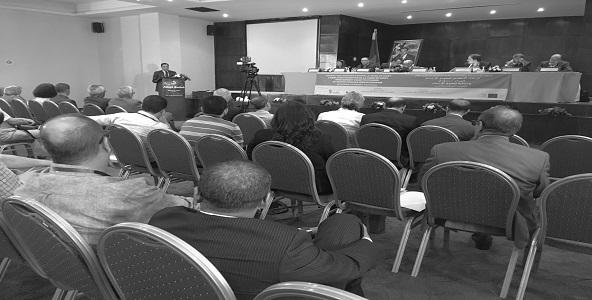
Article(s)
Abolitionist activities, criminal policy at the heart of abolition
By Clémentine Etienne, on 1 August 2018
On 30 June 2018, as a side event to the 2nd National Congress of Réseau des avocats contre la peine mort (RACPM), a conference was organised under the title “Death Penalty and Criminal Policy”. Morocco seemed eager to match its Tunisian neighbour, which had recently proposed, with the Commission on Individual Freedoms and Equality, abolishing the death penalty.
2018
Fair Trial
Morocco
glossaire-genre-et-peine-de-mort
on 15 August 2023
2023
Document(s)
Justice Project Pakistan Death Penalty Database
By Justice Project Pakistan, on 1 January 2019
2019
Multimedia content
Pakistan
enMore details See the document
n the course of its advocacy and litigation work, JPP has developed a substantial collection of data sets on death row. With technical support from HURIDOCS, it has now developed open source data sets based on existing research on death row and on age determination under the Juvenile Justice Systems Ordinance. This project marks the beginning of the process of making the information publicly available, allowing the public and academic institutions to generate their own findings and base their campaigns on verified data.
- Document type Multimedia content
- Countries list Pakistan
- Themes list Statistics,
- Available languages Urdu : جسٹس پراجیکٹ پاکستان کا ڈیٹا بیس
Document(s)
PAKISTAN: The State of Human Rights in 2011
By Human Rights Commission of Pakistan (HRCP) / Asian Human Rights Commission, on 1 January 2011
2011
NGO report
More details See the document
The government’s ineptness to stop the religious and sectarian intolerance has strengthened the banned militant religious groups to organize and collect their funds in the streets and hold big rallies. This ineptness of the government has helped the forced conversion to Islam of girls from religious minority groups. In total thorough out the country during the year 1800 women from Hindu and Christian groups were forced to convert to Islam by different methods particularly though abduction and rape.
- Document type NGO report
- Themes list Arbitrariness, Country/Regional profiles,

Article(s)
Justice Denied: A Global Study of Wrongful Death Row Convictions
By Death Penalty Worldwide, on 26 March 2018
The report is a first-of-its-kind comparative study of wrongful convictions. The report illuminates the similarities in wrongful conviction in six countries: Cameroon, Indonesia, Jordan, Malawi, Nigeria, and Pakistan.
2018
Cameroon
Indonesia
Innocence
Jordan
Malawi
Nigeria
Pakistan
Document(s)
Amnesty International Global Report : Death Sentences and Executions 2022
By Amnesty International, on 16 May 2023
2023
NGO report
aresfrzh-hantMore details See the document
This report covers the judicial use of the death penalty for the period January to December 2022. Amnesty International reports only on executions, death sentences and other aspects of the use of the death penalty, such as commutations and exonerations, where there is reasonable confirmation. In many countries governments do not publish information on their use of the death penalty.

21st World Day Against the Death Penalty – The death penalty: An irreversible torture
on 12 June 2023
2023
Cruel, Inhuman and Degrading Treatment and Punishment
Death Row Conditions
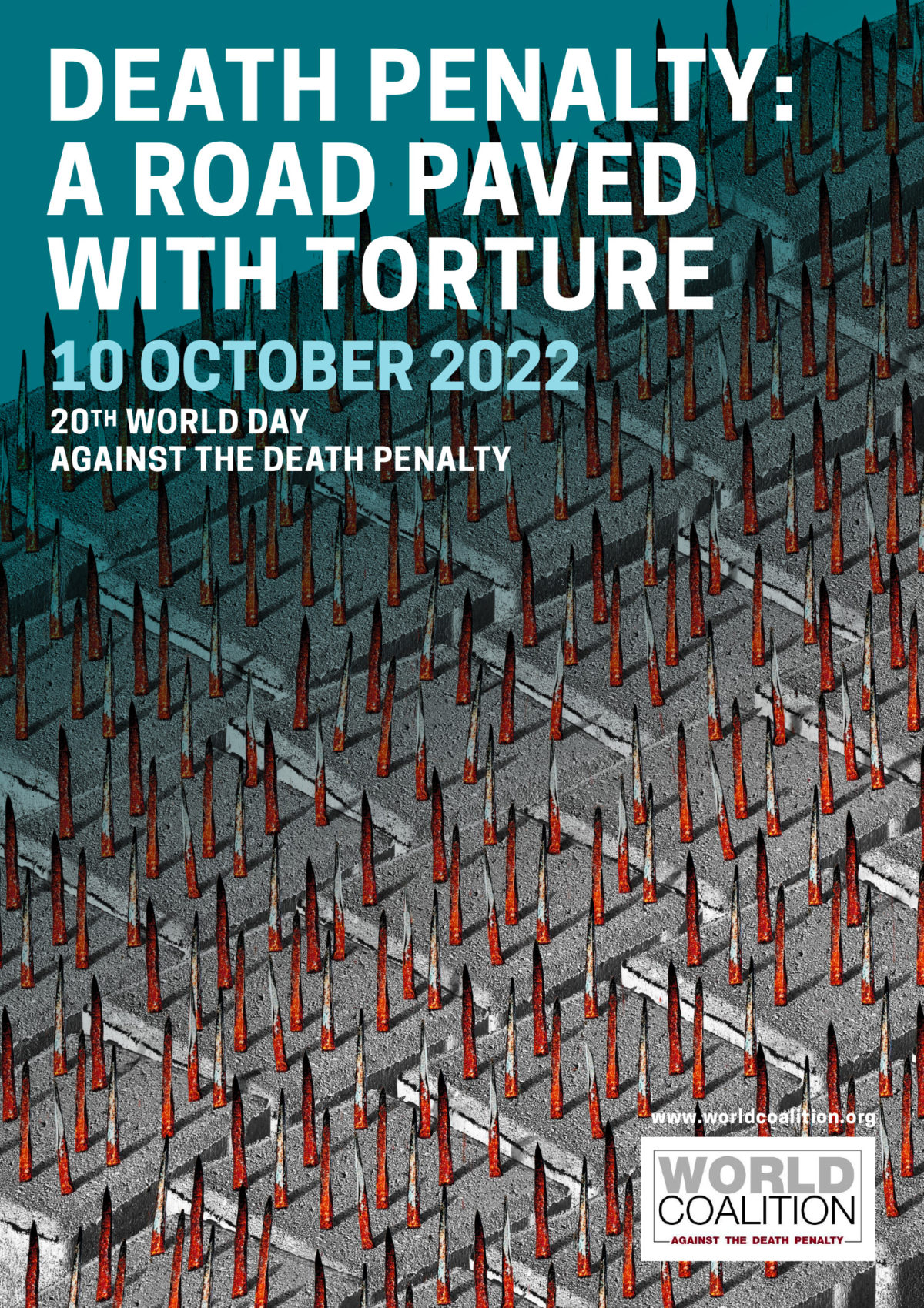
20th World Day Against the Death Penalty – Death penalty: a road paved with torture
on 10 June 2022
As the 20th World Day Against the Death Penalty is marked around the world, now is a time to consider and celebrate the gains the abolitionist movement has made over the past 20 years. Now, more than ever, abolitionist actors need to continue working towards the complete abolition of the death penalty worldwide, for all […]
2022
Cruel, Inhuman and Degrading Treatment and Punishment
Death Row Conditions
Document(s)
Data Mapping: Women on Death Row
By World Coalition against the Death Penalty , on 1 August 2023
2023
NGO report
Gender
frMore details Download [ pdf - 813 Ko ]
In 2021, the 19th edition of the World Day Against the Death Penalty (“World Day” on October 10) was dedicated to the invisible reality of women on death row, paving the way for new data on the issue of women sentenced to death. Many members of the World Coalition Against the Death Penalty (“World Coalition”), in preparation for 10 October, conducted research to document the situations of women facing the death penalty around the world. To systematize the information collected and have a global understanding of women sentenced to death, the World Coalition conducted a data systematization exercise.
This short report presents the main conclusions of this country exercise. These findings are a compilation of existing data available to the World Coalition Against the Death Penalty and its members organization up to December 2022.
- Document type NGO report
- Themes list Gender
- Available languages Cartographie de données : les femmes dans le couloir de la mort
Country
Pakistan
on 30 April 2020
2020
Pakistan
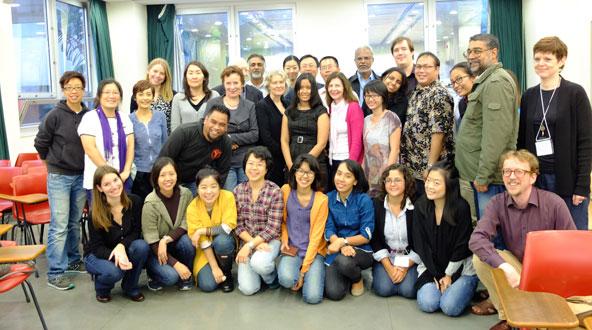
Article(s)
Building a death penalty-free future in Asia
By Aurélie Plaçais, on 6 December 2012
Ways to strengthen transregional action led by Asian activists and ideas to combat obstruction from national authorities were among the issues discussed at the third ADPAN consultative meeting.
2012
Australia
Bangladesh
China
India
Indonesia
Japan
Malaysia
Mongolia
Moratorium
Pakistan
Philippines
Republic of Korea
Singapore
Taiwan
Thailand
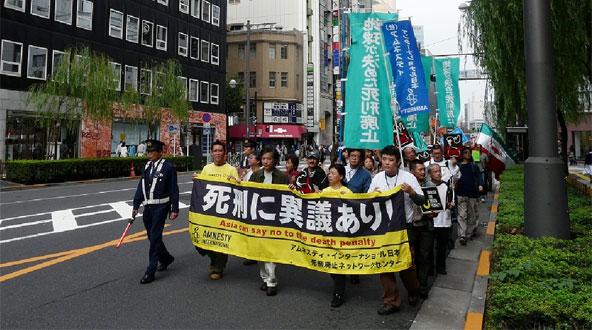
Article(s)
10.10.10 Looking back on the World Day in Asia
on 3 December 2010
The Anti-Death Penalty Asia Network rounds up reports from the main events organised across the Asia-Pacific region for World Day Against the Death Penalty on October 10.
2010
Australia
Bangladesh
India
Indonesia
Iran (Islamic Republic of)
Italy
Japan
Pakistan
Singapore
Terrorism
United States
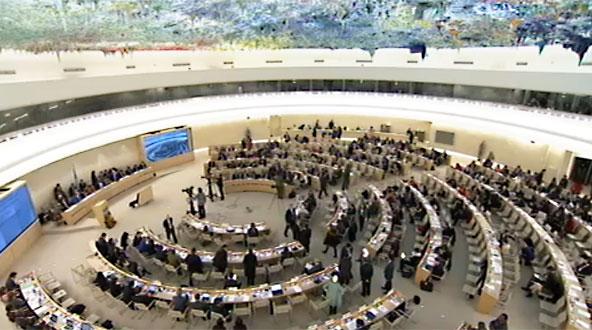
Article(s)
Top UN representatives take stance on death penalty at Human Rights Council
By World Coalition Against the Death Penalty, on 14 March 2014
From UN Secretary General Ban Ki-moon to abolitionist and retentionist government ministers and World Coalition members, participants to a recent discussion on the death penalty placed the issue high on the international agenda.
2014
Afghanistan
Benin
Brazil
Cruel, Inhuman and Degrading Treatment and Punishment
Iran (Islamic Republic of)
Mongolia
Morocco
Myanmar
Namibia
Pakistan
Saudi Arabia
Sierra Leone
Singapore
Sudan
United States
Article(s)
To escape the death penalty: be rich and kill a foreigner
on 24 February 2010
The racial origin of the victim and the social class of the criminal are key factors of discrimination.
2010
Bahrain
Fair Trial
Pakistan
Saudi Arabia

Article(s)
Amnesty 2010 stats: retentionist countries increasingly isolated
on 28 March 2011
Countries which continue to use the death penalty are being left increasingly isolated following a decade of progress towards abolition, Amnesty International has said in its new report Death Sentences and Executions in 2010.
2011
China
Drug Offenses
Egypt
Fair Trial
Indonesia
Iran (Islamic Republic of)
Juveniles
Lao People's Democratic Republic
Libya
Malaysia
Moratorium
Pakistan
Sudan
Thailand
United Arab Emirates
United States
Yemen
28_03_2017_-PUB-Pakistan-UPR-Submission-final-1.pdf
on 8 September 2020
2020
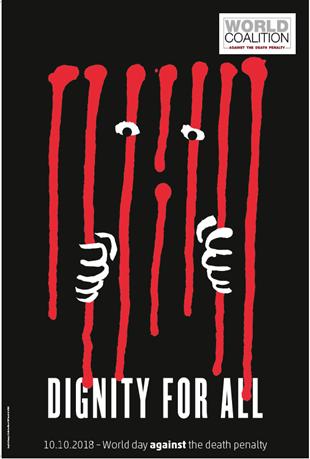
Article(s)
Overcoming the isolation of the people sentenced to death and their relatives
By World Coalition Against the Death Penalty, on 10 September 2018
One of the observations made by the World Coalition while doing the preliminary work for this year’s World Day, is the isolation in which the people sentenced to death might live.
2018
Death Row Conditions

Article(s)
Violations of the Right to Life in the Context of Drug Policies
By International Harm Reduction Association (IHRA), Corporación ATS Acción Técnica Social, IDPC Consortium, Washington Office on Latin America, non-governmental organizations in special consultative status, Anti-Death Penalty Asia Network (ADPAN); Capital Punishment Justice Project (CPJP); Centre on Drug Policy Evaluation (CDPE); Cornell Centre on the Death Penalty Worldwide; Eleos Justice - Monash University; Instituto RIA, AC; Iran Human Rights (IHR); World Coalition Against the Death Penalty., NGO(s) without consultative status, also share the views expressed in this statement, on 10 August 2021
Harm Reduction International and co-signatories congratulate Mr Tidball-Binz on his appointment as Special Rapporteur on summary executions. With this statement, we highlight key violations of the right to life enabled by repressive drug policies or reported in the context of drug law enforcement; and encourage this Rapporteur to pay specific attention to the impact of […]
2021
Death Row Conditions
Drug Offenses
Fair Trial
Article(s)
World Coalition takes part in UN death penalty report launch
on 30 May 2010
The World Coalition held a side event to accompany the presentation of the 8th Quinquennial Report of the UN Secretary General on capital punishment in Vienna on May 19.
2010
Death Row Conditions
Innocence
Juveniles
Legal Representation
Document(s)
European Court for Human Rights cases involving the death penalty
By European Court for Human Rights Press Unit, on 24 June 2022
2022
International law - Regional body
Regional body report
Cruel, Inhuman and Degrading Treatment and Punishment
Death Row Conditions
Fair Trial
More details See the document
“[T]he [European Court of Human Rights] in Öcalan did not exclude that Article 2 [of the European Convention on Human Rights, protecting the right to life,] had already been amended so as to remove the exception permitting the death penalty. Moreover, … the position has evolved since then. All but two of the Member States have now signed Protocol No. 13 [to the Convention, concerning the abolishment of the death penalty in all circumstances,] and all but three of the States which have signed have ratified it. These figures, together with consistent State practice in observing the moratorium on capital punishment, are strongly indicative that Article 2 has been amended so as to prohibit the death penalty in all circumstances. Against this background, the Court does not consider that the wording of the second sentence of Article 2 § 1 continues to act as a bar to its interpreting the words ‘inhuman or degrading treatment or punishment’ in Article 3 [of the Convention, prohibiting torture and inhuman or degrading treatment,] as including the death penalty …” (Al-Saadoon and Mufdhi v. the United Kingdom judgment of 2 March 2010, § 120).
- Document type International law - Regional body / Regional body report
- Themes list Cruel, Inhuman and Degrading Treatment and Punishment / Death Row Conditions / Fair Trial
Document(s)
Living Under Sentence of Death
on 22 April 2022
2022
Academic report
NGO report
Bangladesh
Death Row Conditions
More details See the document
In 2019-20, The Department of Law at the University of Dhaka, in collaboration with the Bangladesh Legal Aid and Services Trust (BLAST) and The Death Penalty Project, conducted a study to investigate socio-economic characteristics and experiences of death row prisoners in Bangladesh.
Bangladesh continues to retain and implement the death penalty, with several executions taking place each year. Excluding laws relating to the defence forces and international crimes, there are currently 33 crimes punishable by death. 25 of these offences are non-lethal and arguably do not meet the threshold of the ‘most serious crimes’ under international law.
Inspired by similar studies in other countries, a pilot study was commissioned to examine the demographics and experiences of those sentenced to death. Consistent with those studies around the world, our findings evidence that the death penalty in Bangladesh is disproportionately used against the most vulnerable and marginalised sections of society.
72% of prisoners were classified as economically vulnerable
53% of prisoners were in low-paid work or unemployed
87% of prisoners had no qualifications beyond secondary school level
15% of prisoners had no formal education.
The study also raised serious concerns around the treatment of prisoners, the length of time prisoners spent in prison under the sentence of death and the integrity of criminal investigations and trial.
33% of prisoners’ families alleged their relative had been tortured in police custody, 5% suspected this and 15% refused to comment
60% of respondents were not satisfied with the trial process, with some claiming that the courts had failed to properly appreciate the evidence
On average it took over 10 years for death row cases to be disposed by the HCD (where sentences are confirmed). Prolonged time spent in isolation on death row, has been declared inhumane and degrading in many countries.
The sample consisted of 39 individuals on death row, evidence from their case files and face-to-face interviews with their families were conducted under rigorous ethical guidelines to reveal their profiles and experiences. Despite its small size, the sample is indicative of the general prison population allowing us to draw conclusions on possible trends.
- Document type Academic report / NGO report
- Countries list Bangladesh
- Themes list Death Row Conditions
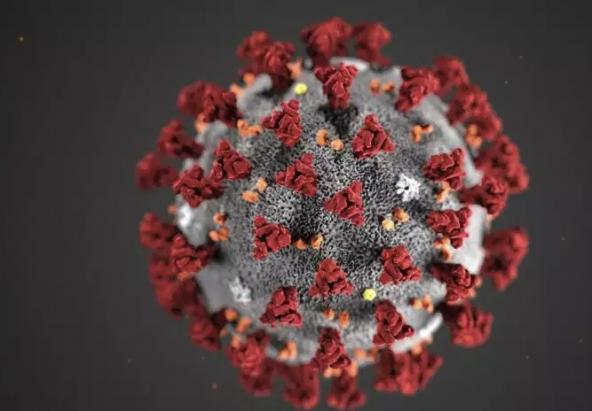
Article(s)
COVID-19: Calling for a Worldwide Moratorium on the Death Penalty During the Pandemic
By World Coalition Against the Death Penalty, on 18 June 2020
“When the whole world is trying hard to save lives from COVID-19, an execution by the state is contradictory and perverse” said Kevin Miguel Rivera Medina, President of the World Coalition Against the Death Penalty.
2020
Moratorium
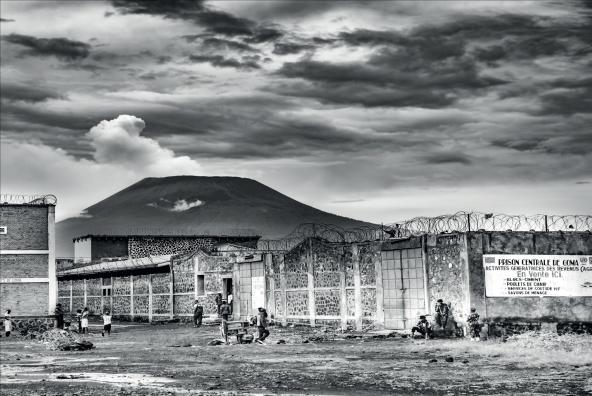
Article(s)
Death Sentences in the Democratic Republic of the Congo More Numerous than Previously Thought
By Bronwyn Dudley, on 12 March 2020
ECPM and CPJ published a report in December 2019 following a fact-finding mission in the Democratic Republic of the Congo (DRC) that took place earlier in the year. The results of the mission were astonishing – while the number of individuals sentenced to death was previously estimated to be 300 at most, the mission uncovered that there are at least 510 waiting execution. Liévin Ngondji, co-author of the report and President of CPJ, was in Paris in February 2020 to comment. Photo on the cover of the Report : 22 Oct 2015. Prison Centrale Goma, Democratic Republic of Congo copyright Ben Houdjik/ Shutterstock
2020
Cruel, Inhuman and Degrading Treatment and Punishment
Democratic Republic of the Congo
Fair Trial
Document(s)
United States – Committee on the Elimination of Racial Discrimination – Death Penalty – May 2022
on 21 July 2022
2022
NGO report
United States
More details Download [ pdf - 703 Ko ]
1. The Committee last reviewed the United States’ compliance with the International Convention on the Elimination of All Forms of Racial Discrimination in 2014. Among the 2014 Concluding Observations are two recommendations relevant to this Report. 2. The Committee stated that it “remain[ed] concerned that members of racial and ethnic minorities, particularly African Americans, continue to be disproportionately arrested, incarcerated and subjected to harsher sentences, including life imprisonment without parole and the death penalty.” Among other things, the Committee encouraged “[a]mending laws and policies leading to racially disparate impacts in the criminal justice system … and implementing effective national strategies or plans of action aimed at eliminating structural discrimination.” The Committee specifically encouraged “[i]mposing a moratorium on the death penalty, at the federal level, with a view to abolishing the death penalty.”1 3. The Committee also commented on “the ongoing challenges faced by indigent persons belonging to racial and ethnic minorities to access legal counsel in criminal proceedings in practice.” The Committee encouraged the adoption of “all necessary measures to eliminate the disproportionate impact of systemic inadequacies in criminal defence programmes on indigent defendants belonging to racial and ethnic minorities, including by improving the quality of legal representation provided to indigent defendants.”2 4. This report addresses the United States’ compliance with its human rights obligations under the Convention with regard to the death penalty, including with respect to those areas identified in the Committee’s 2014 Concluding Observations as described above.
- Document type NGO report
- Countries list United States
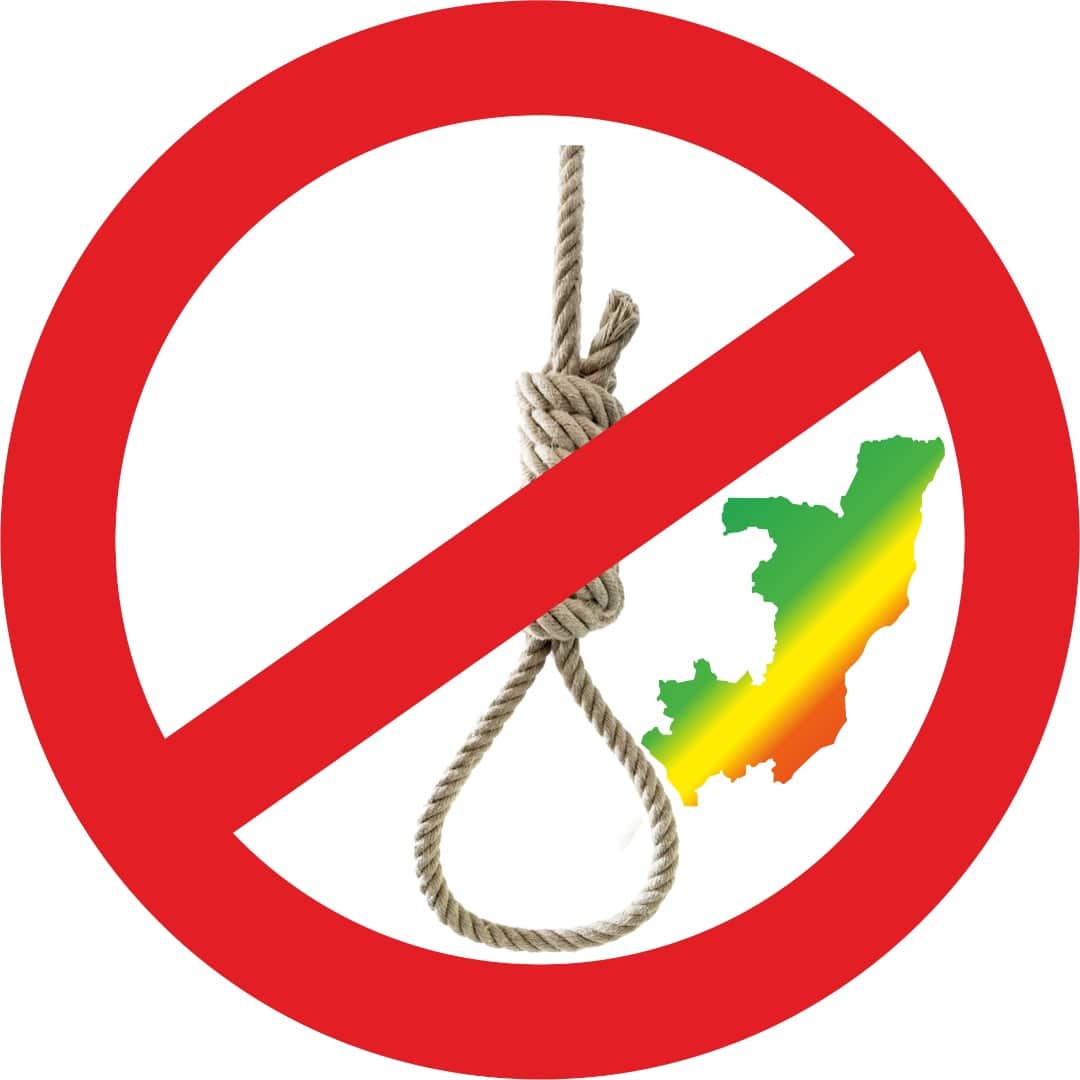
Member(s)
Coalition Congolaise Contre la Peine de Mort (CCPM)
on 27 February 2023
In their desire to promote the abolition of the death penalty in the Republic of Congo, Congolese abolitionists have formed a coalition called the Coalition Congolaise Contre la Peine de Mort, Congolese Coalition Against the Death Penalty (CCCPM). This coalition was created on October 02, 2019 in Brazzaville. Its main objectives are the promotion of […]
2023
Congo
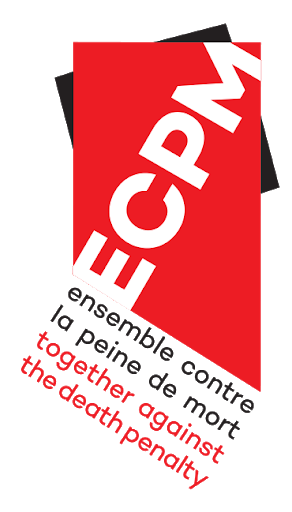
Member(s)
Ensemble contre la peine de mort (ECPM)
on 30 April 2020
Since 2000, Together against the Death Penalty (Ensemble contre la peine de mort – ECPM) acts to fight against the death penalty around the world. The association promotes the universal abolition through the creation and dissemination of publications and teaching tools, as part of public campaigns and lobbies governments at both national and international levels. […]
2020
France
Article(s)
World Coalition welcomes the success of its 15th General Assembly
By World Coalition Against the Death Penalty, on 8 September 2017
More than 50 member organisations of the World Coalition Against the Death Penalty gathered for three days on 22-24 June 2017 in Washington DC for the General Assembly of the World Coalition.
2017

